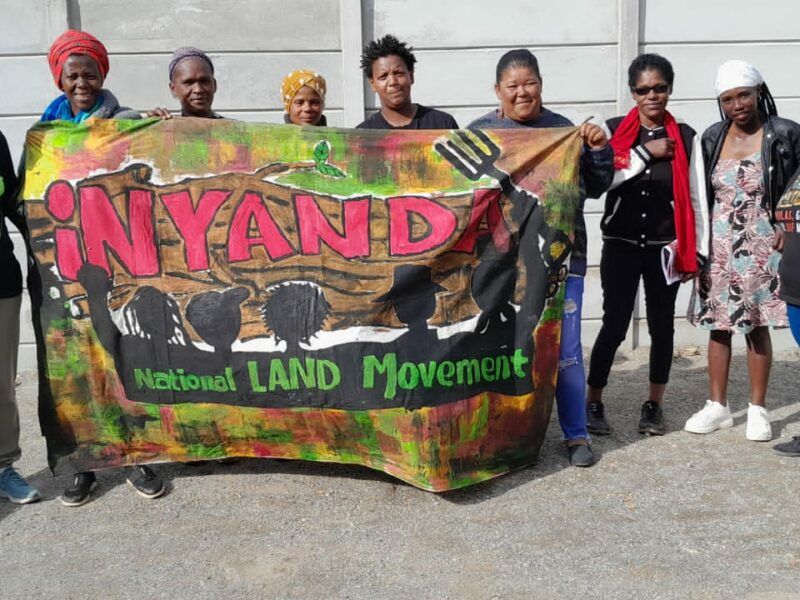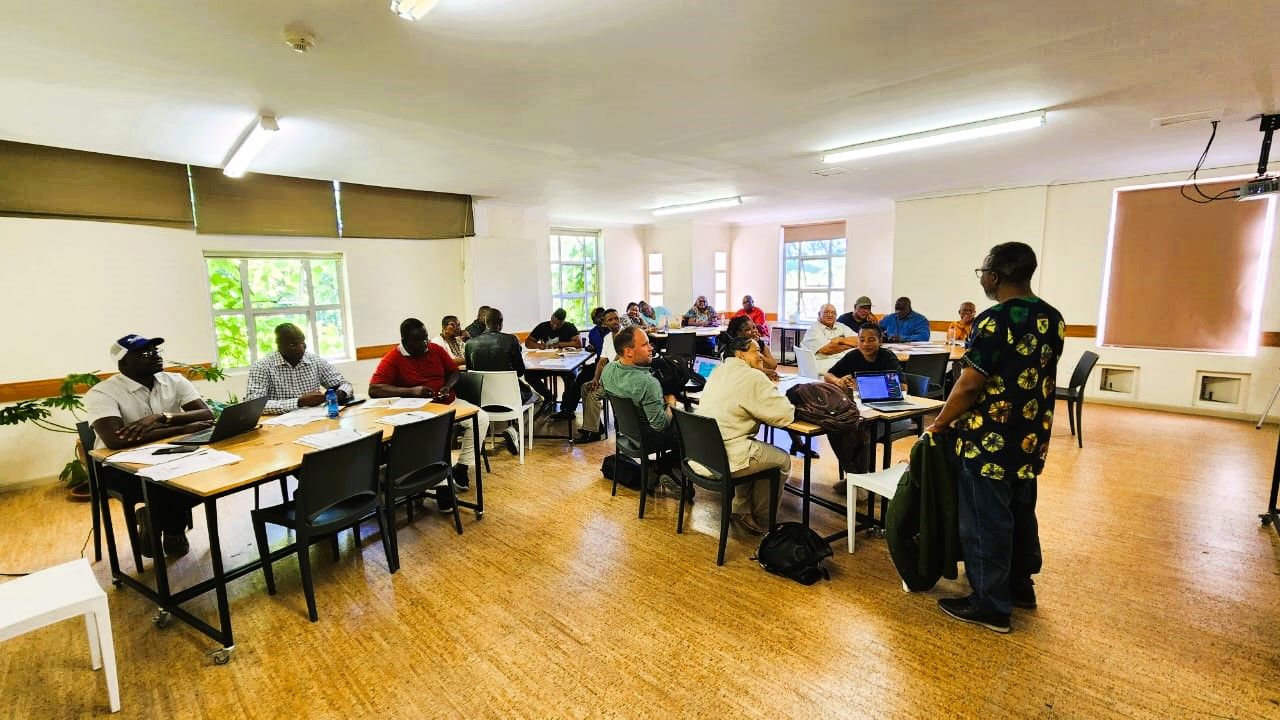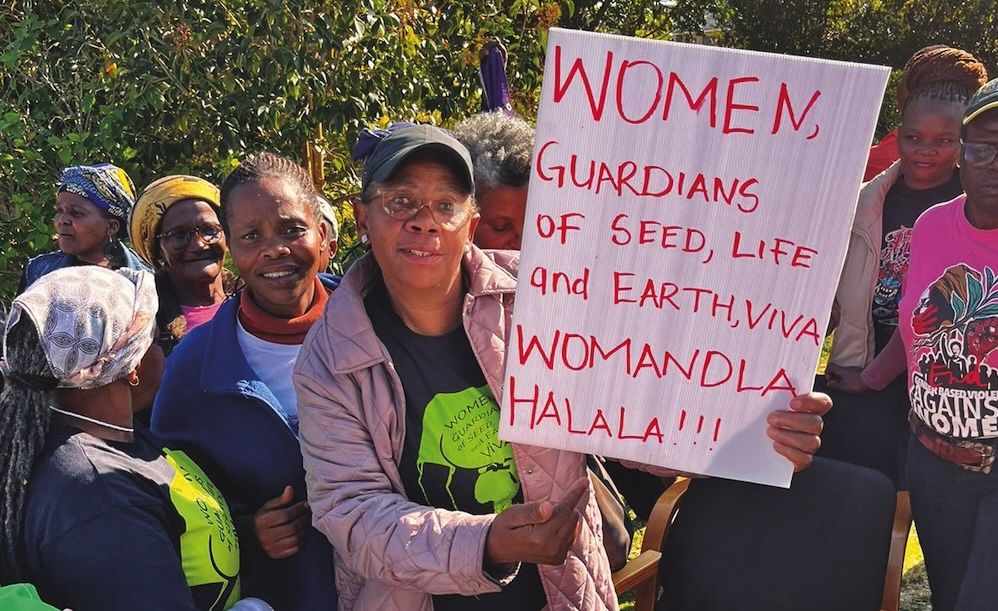WORK STREAM
TCOE believes that the struggles for land and water, food and marine resources are inseparable from the struggle to rebuild leadership and imagine new paths for development. Our Movement Building stream works alongside landless people, small- scale farmers, producers, farmworkers, small scale fishers, and forest dwellers to help them organise, connect and build solidarity around shared visions for an alternative future, and enable the collective action needed to address the deep-rooted issues of land dispossession, land redistribution and the separation of people from natural resources and shared commons.
Throughout the country, we help communities organise and strengthen their voices, and help to establish and support movements and associations such as farmworkers, small holder crop production and livestock farmers, small scale fishers / youth, unemployed movements, landless.
The above associations and movements are components of Inyanda National Land Movement.

Inyanda National Land Movement
The Inyanda National Land Movement was established by ten organisations in 2013 as a rural movement to wage a national struggle for land and agrarian transformation. It is a membership-based rural movement of smallholder producers, small fishers, farm workers, and dwellers across the country, with its own elected leadership. The TCOE acts as a supporting organisation to the Inyanda National Land Movement through our streams.

Lobbying and Advocacy
The TCOE Movement Stream supports communities and mobilises communities to advocate for access to land and water, food and marine resources, which includes advocating for solutions to outdated infrastructure, racial disparities in distribution and the wasteful and unequal practices of large businesses and industries.

Land and Water Campaigns
The Movement Building stream partners with organisations and communities to raise awareness and advocate for solutions to land and water issues. Key issues include difficulties in accessing land and water, sanitation and inadequate infrastructure in rural and peri-urban areas, making them vulnerable to environmental risks, especially climate change. These issues are addressed through every stream via political schools, workshops, campaigns, advocacy and direct engagement with municipalities and relevant government departments. Where necessary, the TCOE also provides legal assistance through the Rural Legal Centre.